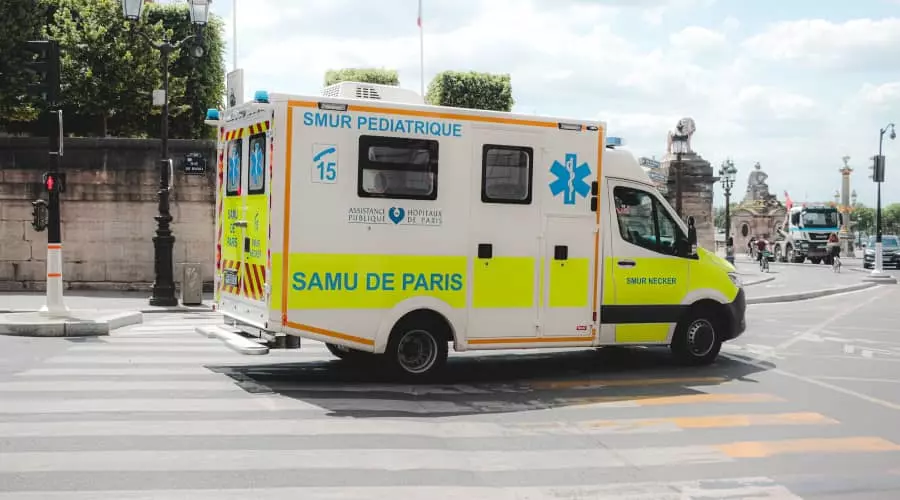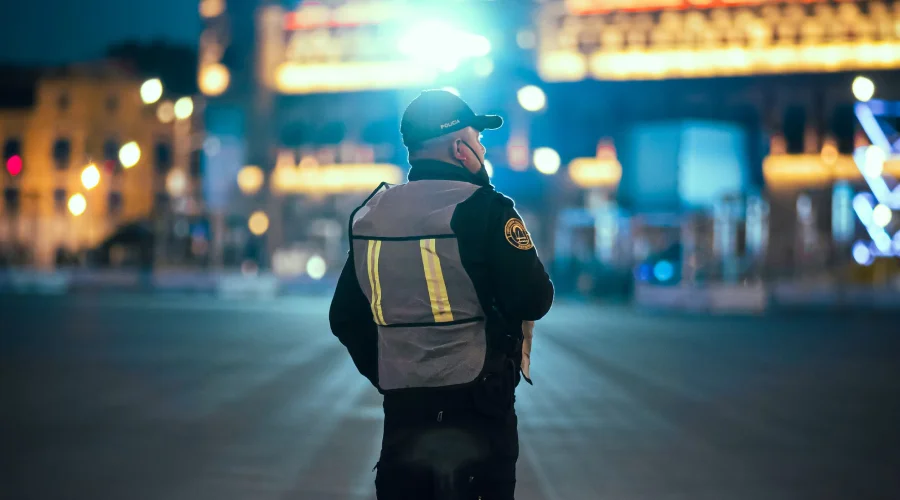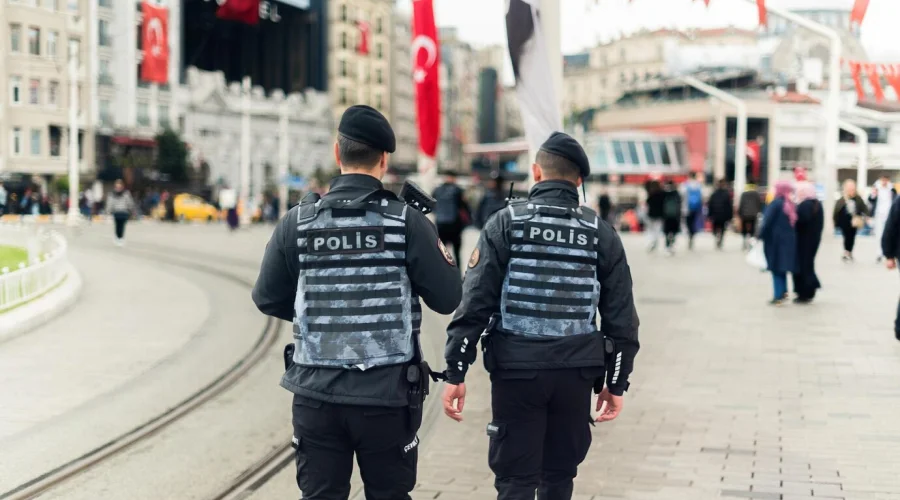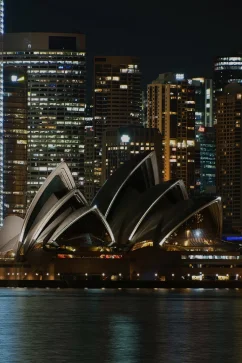Guide to Emergency Places in Paris: Safety and Assistance

Paris, the City of Light, is a beautiful and captivating destination that enchants millions of visitors every year. While your trip is likely to be filled with wonderful experiences, it’s important to be prepared for unexpected emergencies. This guide will provide you with essential information on handling various emergencies while in Paris.
Medical Emergencies
Paris has several hospitals with emergency departments, known as “Les Services d’Urgence.” Some prominent ones include:
Hôpital de la Pitié-Salpêtrière
Phone: +33 1 42 16 00 00
Adress: 47-83 Bd de l’Hôpital, 75013 Paris, France
Hôpital Saint-Antoine
Phone: +33 1 49 28 20 00
Adress: 184 Rue du Faubourg Saint-Antoine, 75012 Paris, France
Hôpital Necker-Enfants Malades
Phone: +33 1 44 49 40 00
Adress: 149 Rue de Sèvres, 75015 Paris, France
Emergency Number: In case of a medical emergency, dial 112 or 15 (SAMU – Service d’Aide Médicale Urgente) for an ambulance.
Paris, as a major city, has numerous hospitals and medical centers to cater to the healthcare needs of its residents and visitors. Here are some notable hospitals and medical centers in Paris:
Hôpital de la Pitié-Salpêtrière: A renowned teaching hospital with a wide range of medical services, including emergency care, located in the 13th arrondissement.
Phone: +33 1 42 16 00 00
Adress: 47-83 Bd de l’Hôpital, 75013 Paris, France
Hôpital Saint-Antoine: Located in the 12th arrondissement, this hospital provides various medical specialties, including surgery, pediatrics, and maternity care.
Phone: +33 1 49 28 20 00
Adress: 184 Rue du Faubourg Saint-Antoine, 75012 Paris, France
Hôpital Necker-Enfants Malades: A pediatric hospital and research center located in the 15th arrondissement.
Phone: +33 1 44 49 40 00
Adress: 149 Rue de Sèvres, 75015 Paris, France
Hôpital Cochin: A teaching hospital known for its maternity and pediatric services, situated in the 14th arrondissement.
Phone: +33 1 58 41 41 41
Adress: 27 Rue du Faubourg Saint-Jacques, 75014 Paris, France
Hôpital Bichat-Claude Bernard: Located in the 18th arrondissement, this hospital is recognized for its medical research and specialties like cardiology and infectious diseases.
Phone: +33 1 40 25 80 80
Adress: 46 Rue Henri Huchard, 75018 Paris, France
American Hospital of Paris: An English-speaking hospital offering a wide range of medical services for expatriates and travelers, located in Neuilly-sur-Seine, just outside Paris.
Phone: +33 1 46 41 25 25
Adress: 55 Bd du Château, 92200 Neuilly-sur-Seine, France
Hôpital Européen Georges-Pompidou: Located in the 15th arrondissement, this hospital provides a comprehensive range of medical services and is associated with the Université Paris-Descartes.
Phone: +33 1 56 09 20 00
Adress: 20 Rue Leblanc, 75015 Paris, France
Hôpital Lariboisière: Situated in the 10th arrondissement, this hospital is known for its trauma center and emergency care.
Phone: +33 1 49 95 65 65
Adress: 2 Rue Ambroise Paré, 75010 Paris, France
Hôpital Tenon: Located in the 20th arrondissement, it offers various medical specialties, including orthopedics and urology.
Phone: +33 1 49 95 65 65
Adress: 2 Rue Ambroise Paré, 75010 Paris, France
Hôpital Beaujon: This hospital in Clichy, just outside Paris, provides medical care in areas like neurosurgery and vascular surgery.
Phone: +33 1 40 87 50 00
Adress: 100 Bd du Général Leclerc, 92110 Clichy, France
Please note that Paris has many more hospitals, medical centers, clinics, and specialized healthcare facilities beyond this list. The healthcare system in France is highly regarded for its quality, and Paris offers a wide array of medical services to meet the needs of its diverse population and the numerous visitors it welcomes each year. If you require medical assistance in Paris, it’s essential to contact the appropriate facility or seek guidance from local healthcare professionals or authorities.

Police and Law Enforcement
The number of police and law enforcement personnel in Paris can vary depending on the specific law enforcement agencies and their responsibilities. Paris, as the capital of France, is served by various police and security forces. Here are some key law enforcement agencies and their roles:
National Police (Police Nationale)
The National Police is responsible for maintaining law and order in Paris and throughout France. It includes various divisions, such as the Criminal Police (Police Judiciaire), Traffic Police (Police de la Circulation), and Riot Police (Compagnies Républicaines de Sécurité, or CRS). In any way, the chat is not designed to receive reports of emergency situations which must imperatively be the subject of a telephone call (17 for the national police and gendarmerie or 112 for the emergency services) or sending an SMS (to 114 for people who have difficulty speaking or hearing).
Municipal Police (Police Municipale)
The Municipal Police are responsible for local law enforcement within specific municipalities, including the city of Paris. They primarily handle issues related to municipal regulations, parking, and public safety within their jurisdiction.
Gendarmerie Nationale
The Gendarmerie is a military police force responsible for policing rural areas, small towns, and some suburbs in France. They provide law enforcement services in areas outside the jurisdiction of the National Police.
Transit Police (Sûreté Ferroviaire)
The Transit Police are responsible for the security and safety of the Parisian public transportation system, including the metro and trains.
Airport Police (Police de l’Air et des Frontières)
Airport Police ensure security and law enforcement at Paris’s airports, including Charles de Gaulle Airport and Orly Airport.
Specialized Units
Paris also hosts various specialized units, including anti-terrorism units, cybercrime units, and organized crime units, which operate in coordination with national and international agencies.
It’s important to note that the numbers and distribution of law enforcement personnel can change over time, and the figures may not be readily available to the public due to security reasons. The primary law enforcement agency responsible for general public safety and law enforcement in Paris is the National Police, which has multiple divisions and officers stationed throughout the city.
In the event of an emergency or if you require police assistance in Paris, you can dial the emergency number “112” or “17” to reach the police. Additionally, there are police stations (commissariats) located throughout the city, making it accessible for residents and visitors to seek assistance when needed.
Lost or Stolen Items
If you lose your passport, ID, or other important documents, contact your country’s embassy or consulate in Paris. They can provide guidance on replacement and legal assistance. For lost or stolen credit cards, contact your bank immediately to report the loss and prevent unauthorized transactions.

Embassies and Consulates
Paris is home to a significant number of embassies and consulates representing countries from around the world. The approximate number of embassies and consulates can change over time due to diplomatic relations, with approximately 150 embassies and consulates in Paris. These diplomatic missions serve a variety of functions, including promoting diplomatic relations, assisting citizens from their respective countries, and facilitating trade and cultural exchanges.
It’s important to note that the number and locations of embassies and consulates may change, and new missions may be established or existing ones relocated. If you need information about a specific embassy or consulate or require consular assistance, it’s best to consult the official website or contact the embassy or consulate directly for the most up-to-date and accurate information. You can also contact your country’s embassy or consulate in Paris for assistance or information regarding consular services and support while in France.
Tourist Assistance
If you are a tourist and encounter problems, you can seek assistance from the Paris Tourist Office. They can provide information, maps, and guidance for various situations.
Remember that in any emergency, it’s essential to stay calm and seek assistance as needed. While Paris is a safe city, it’s always wise to be prepared and aware of your surroundings. Additionally, consider having important contact numbers and addresses written down or saved in your phone before your trip, just in case you need them.

Conclusion
Paris is generally safe but not without concerns. It has low violent crime but is prone to petty theft. Terrorism is a risk, and vigilance is needed. Police presence is significant. Overall, common-sense precautions should be taken, but Paris remains a popular and vibrant city.
Paris has a significant police presence, and law enforcement agencies actively work to maintain public safety. This presence can help deter criminal activity and ensure a prompt response to emergencies.
In conclusion, Paris is generally a safe destination for tourists and residents, and millions of people visit the city without any issues. However, like any major city, it has its safety considerations, and visitors should be aware of potential risks, exercise common-sense precautions, and stay informed about current security conditions. Paris remains a popular and vibrant city, offering a rich cultural experience, and many people enjoy their time there without any safety concerns.









